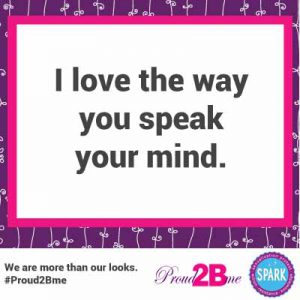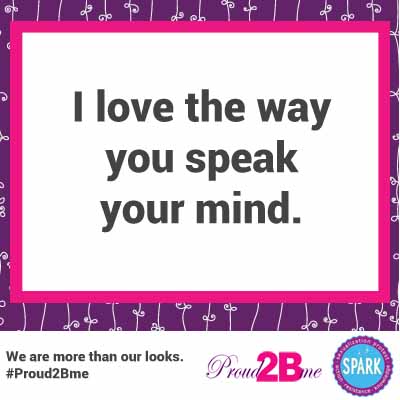by Annemarie McDaniel
Society’s expectations of women pull and stretch us in every direction, telling us to be slender but not anorexic, sexy but not sexual, and pretty but not vain. It’s a constant balancing act for women, and now young girls, to emulate what the media tells us is the ultimate woman, and it often feels unavoidable. Grocery store checkout lines display magazine after magazine with flawless celebrities and fitness tips, luring us in with “Easy Ways to be What Men Want!” It seems to engulf us, but that doesn’t mean we need to accept it as the way things are. We can change the way we view ourselves, the way we view other women, and the way we interact with media.
woman, and it often feels unavoidable. Grocery store checkout lines display magazine after magazine with flawless celebrities and fitness tips, luring us in with “Easy Ways to be What Men Want!” It seems to engulf us, but that doesn’t mean we need to accept it as the way things are. We can change the way we view ourselves, the way we view other women, and the way we interact with media.
I remember when photo-editing software first became accessible to the general public. My friends and I spent hours creating our own works of art, magically turning pictures from plain to dramatic black and white or adding borders and text. Computer photo editors also gave us the tools to erase zits with the push of a button, or in more advanced programs, reshape the curves in our bodies and faces. I’d wave my cursor over each imperfect image, hoping that, if those pimples vanished or the circles under my eyes disappeared, my insecurities would dissolve right along with them. Or even better: that I would look back at those photos years later and I would never remember those flaws had been there.
It doesn’t help when we compliment each other, either online or in person, only about the way they look. Hearing that you’re pretty is not inherently a terrible thing—I always love knowing someone appreciates my hair—but it is harmful when those are the only types of compliments we receive. It teaches girls that people do appreciate their passion or their intellect or their kindness, but that their appearance will never stop being a central part of the conversation.
When I was younger, the nice comments I received on my clothes and figure reminded me that people were judging my appearance. People asked questions like where I bought my scarf much more often than what I was interested in studying after high school. I spent more and more time in front of the mirror each morning, making sure to apply my makeup just right and checking that I hadn’t eaten too much the previous night. I felt like I was constantly the “before” picture in a makeover magazine spread, and I always worked hard to make myself into the beautiful “after” shot.
I still remember those zits I erased in photos and those days when I just waited for someone to compliment me on my shirt. It took me years of gradual confidence building to realize that I am gorgeous and valuable even when I don’t dress to the nines and look like a model.
 We are raised to feel like we are inadequate, that we are not good enough for boys, for attention, for compliments, for acceptance, for success. Teenagers and pre-teens consume an average of 10 hours of media a day. Those images can send encouraging messages, but they can also perpetuate toxic stereotypes. It can show women being sexualized in magazine advertisements, women gossiping about other’s appearances on television, and music videos on YouTube where men treat women as inferior. They are being aimed at a younger and younger girl audience, but we have the power to shape the social culture surrounding us by changing the way we think.
We are raised to feel like we are inadequate, that we are not good enough for boys, for attention, for compliments, for acceptance, for success. Teenagers and pre-teens consume an average of 10 hours of media a day. Those images can send encouraging messages, but they can also perpetuate toxic stereotypes. It can show women being sexualized in magazine advertisements, women gossiping about other’s appearances on television, and music videos on YouTube where men treat women as inferior. They are being aimed at a younger and younger girl audience, but we have the power to shape the social culture surrounding us by changing the way we think.
In light of all this, The National Eating Disorder Association is launching a three day campaign reminding girls that their value lies in more than their appearance, and SPARK is partnering with them to celebrate ourselves and our friends and push back against media madness.
Join SPARK and the National Eating Disorder Association for the Proud2bMe 3-Day Challenge:
October 11 (Day 1): Take the pledge to not digitally alter your face or body to hide flaws on social media photos.
October 12 (Day 2): Use social media like Twitter and Facebook to ask tabloid magazines to stop bashing women’s bodies. You can get pre-written tweets on Proud2BeMe’s wesbite, or create some of your own!
October 13 (Day 3): Give compliments to girls and women in your life that are not based on what they look like–stuff like, “you always keep your cool in a crisis” or “I love how you’re not afraid to say what’s on your mind.” Get compliment cards to send to your friends here!
It’s time to celebrate girls for their real beauty, inside and out. Are you in?

[…] in NYC then launch into their own version of an after-party of continuing education, by hosting a 3-Day Challenge with Proud 2B Me USA and NEDA to reinforce “we are more than our looks,” tackling body image issues head […]